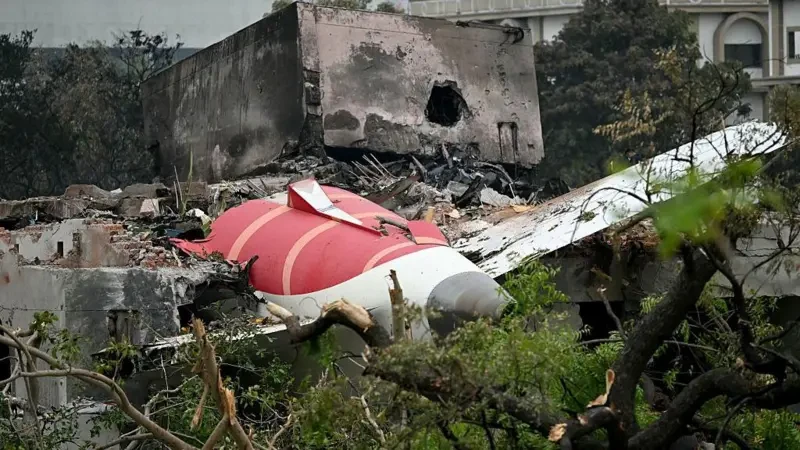The tension between Thailand and Cambodia primarily stems from a long-standing border dispute, heavily focused on the area surrounding the 11th-century Preah Vihear temple. Here's a breakdown of the key causes: * Colonial-era border demarcation: The roots of the dispute lie in maps drawn by the FrenRead more

Here’s a breakdown of the key causes:
* Colonial-era border demarcation: The roots of the dispute lie in maps drawn by the French colonial power in 1907, which were intended to delineate the border between then-Siam (Thailand) and French-controlled Cambodia. Thailand argues these maps are inaccurate and were not knowingly accepted, while Cambodia uses them as the basis for its territorial claims. The vagueness of the watershed line used in the mapping has allowed for competing interpretations.
* The Preah Vihear Temple: This ancient Hindu temple, perched on a cliff in the Dângrêk Mountains, is the most prominent flashpoint.
* ICJ Rulings: In 1962, the International Court of Justice (ICJ) ruled that the temple itself lies within Cambodian territory, based on the 1907 French map. However, Thailand continued to claim the surrounding land. In 2013, the ICJ reaffirmed its ruling, declaring that the land around the temple also belonged to Cambodia.
* Nationalist Pride: For both countries, the temple is a powerful symbol of national identity and cultural heritage. This fuels strong nationalist sentiments, making it difficult to compromise on territorial claims.
* UNESCO World Heritage Site: Cambodia’s successful bid to list Preah Vihear as a UNESCO World Heritage Site in 2008 further intensified tensions, as Thailand feared it would legitimize Cambodia’s control over the surrounding territory.
* Unclear Borders Beyond Preah Vihear: While Preah Vihear is the most well-known, there are other ancient temple sites and areas along the 800km shared border where demarcation remains disputed, such as Ta Muen Thom and Ta Krabey temples.
* Recent Escalations and Triggers:
* Landmines: Recent clashes have been triggered by incidents involving landmines, with Thailand accusing Cambodia of newly planting them (which Cambodia denies, attributing them to remnants of past conflicts).
* Political Instability: Domestic political upheaval in both nations can sometimes exacerbate border tensions, as leaders may use nationalist rhetoric for political gain.
* Military Encounters: Direct military confrontations, including exchanges of fire and accusations of territorial incursions, frequently lead to diplomatic breakdowns and further escalate the situation.
In essence, the tension is a complex mix of historical grievances, unresolved colonial-era border issues, the symbolic importance of cultural sites like Preah Vihear, and ongoing nationalistic sentiments.

 روایتی طور پر جاپان میں بیویوں کے ہاتھوں میں تنخواہیں دینے کا رجحان دوسری In Japan, it is a traditional and common practice for husbands to give their entire salary to their wives, who then manage the household finances and provide the husband with an allowance (known as “kozukai”). This practice stems from a combination of historical, social, and practical factors:
روایتی طور پر جاپان میں بیویوں کے ہاتھوں میں تنخواہیں دینے کا رجحان دوسری In Japan, it is a traditional and common practice for husbands to give their entire salary to their wives, who then manage the household finances and provide the husband with an allowance (known as “kozukai”). This practice stems from a combination of historical, social, and practical factors:











Here’s what’s happening: 🔹 What Did Macron Announce? French President Emmanuel Macron stated on July 24, 2025, that France plans to formally recognize the State of Palestine during the United Nations General Assembly in September 2025, positioning France as the first major Western power to take thisRead more
Here’s what’s happening:
🔹 What Did Macron Announce?
French President Emmanuel Macron stated on July 24, 2025, that France plans to formally recognize the State of Palestine during the United Nations General Assembly in September 2025, positioning France as the first major Western power to take this step (euronews, euronews).
🔹 Trump’s Response
U.S. President Donald Trump, speaking at the White House on July 25, 2025, dismissed Macron’s announcement as inconsequential. He said “what he says doesn’t matter,” calling Macron a “good guy” but insisting the declaration lacks impact and will change nothing (Reuters).
🔹 Official U.S. Condemnation — Rubio & Republican Leaders
U.S. Secretary of State Marco Rubio issued a strong rebuke via X:
Senators Lindsay Graham and Tom Cotton joined the criticism, warning that the recognition could embolden Hamas and undermine peace negotiations (The Bullet).
🔹 Israeli Reaction
Israeli Prime Minister Benjamin Netanyahu labeled Macron’s announcement as rewarding terror and a threat to Israeli security. He argued that recognizing a Palestinian state under current conditions could create another Iranian-backed proxy (Irish Examiner).
Deputy Prime Minister Yariv Levin called it “a disgrace and a surrender to terrorism,” suggesting Israel should respond by applying sovereignty to parts of the West Bank (The Bullet).
🔹 Support and Broader Context
✅ Quick Summary
🧭 Where It Stands Today
As of July 25, 2025, Macron’s plan is set, with formal recognition slated for the UN General Assembly in September 2025. Trump and his administration have rejected the move, dismissing its significance. Meanwhile, France’s announcement has received both strong criticism from the U.S. and Israel—and support from various European and Arab states (Reuters, euronews, euronews).
Let me know if you’d like more context on reactions from other countries or deeper insight into the diplomatic stakes.
-
See less